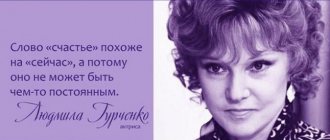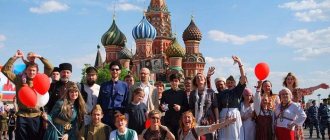Childhood
Childhood is a key period in Gorky's life. Stories about a hopeless and unhappy childhood were the most important part of the image of Gorky the tramp, who came from the very bottom. Throughout his life, Gorky legendd his childhood and his origins and achieved great success in this. His canonical biography is known exclusively from his words.
Gorky's autobiographical books are fiction, and many researchers believe that they cannot be taken as a documentary source. It can be more or less confidently stated that Alexey Peshkov (as he was called at birth) was born into a very prosperous family. His father is a cabinetmaker (in the pre-revolutionary Brockhaus-Efron encyclopedia it is reported that he was the manager of a shipping company), his mother is from the family of a wealthy dyer Kashirin. Grandfather Kashirin was a member of the City Duma for some time.
At the age of three, Alexei fell ill with cholera. The father who cared for him became infected and died. Alexey survived, but in fact became the cause of the collapse of his family. The mother and child returned to their father's house. Then the whole family quarreled over the inheritance. Everyone beat each other, offended each other, the life of young Peshkov was unbearable. He studied at a public school for two years, but dropped out. The mother remarried a nobleman who beat her, and then young Peshkov tried to stab him to death. He was sent back to his grandfather. Soon his mother died of tuberculosis - and his grandfather sent him to the people. A short time later his grandmother died, followed by his grandfather.
All this is known from the words of the writer; it is currently almost impossible to confirm or refute this. All of Gorky's relatives had died by the time he became famous. The only alarming fact is that Gorky never mentions his godparents, but the Kashirin family was devout and godparents at that time played a significant role in the life of a child, especially an orphan.
It is a reliable fact that he made two suicide attempts in 1887 to “get rid of a toothache in his heart,” as he wrote in his suicide note. As a result, Gorky was cured and released, and soon a hitherto unprecedented writer appeared in Russia.
Confession
Already five years after his literary debut, Gorky was an absolute star in the literary community. Every writer, beginning or famous, considered it his duty to make friends with Gorky. He very quickly began to receive exorbitant fees. Bunin wrote with some envy: “We received in the “Collections of Knowledge” some 300, some 400, and some 500 rubles per sheet, he received 1000 rubles.”
For comparison, the monthly salary of an unskilled worker was about 20 rubles. The general received more than two times less for a month of service than Gorky for one printed sheet. The writer fell in love with expensive French wines and became interested in collecting. He changed his image, no longer playing the tramp. Now he was a thinker.
At bohemian parties, he gathered his admirers into a circle and uttered thoughtful phrases to them, looking down on them. Bunin described him at that time: “When visiting, in society, it was hard to see him: everywhere he appeared, there were so many people, not taking their eyes off him, that it was impossible to crowd. He behaved more and more angularly, more and more unnaturally, did not look at anyone from the audience, sat in a circle of two or three selected celebrity friends, frowned fiercely, <...> sometimes loudly uttered some maxim or political prophecy for general use.”
Statements about A.M. Gorky.
“A.M. Gorky at his desk."
Artists N.A. PESHKOVA, S.S. URANOV. 1950
L. N. Andreev (1971-1919. Russian writer, representative of the Silver Age of Russian literature).
- “The sharpest and deepest feature, moreover, the basis of Gorky’s artistic individuality is his despotism. A ruler, a ruler, a despot who does not tolerate contradictions in anyone, even in himself. If Gorky contradicts Gorky, then he simply covers it with a hat; and even if there are two heads under the hat, there is complete unity on the outside.”
M. A. Bulgakov . (1891-1940. Russian and Soviet writer, playwright, theater director and actor).
- “I don’t like Gorky as a person, but what a huge, strong writer he is and what terrible and important things he says about the writer.”
I. A. Bunin. (1870-1953. Russian writer, poet, translator).
- “For so many years now, world fame has been completely unparalleled and undeserved.”
D. L. Bykov. (1967 Russian writer, literary critic, radio and television presenter, journalist, literature teacher, film critic).
- “The nineties of the 19th century and the first half of the 1900s passed in Russia under the sign of Gorky - even his haters will not argue with this.”
- “Gorky is a great, monstrous, touching, strange and absolutely necessary writer today.”
- “Gorky is the proletarian Pechorin, evidence that now the fate of Russia will be decided by the lower classes.”
- “Gorky was not fascinated by Marxism, but was fascinated by the dream of a new man and a new God...”
D. S. Merezhkovsky . (1865-1941. Russian writer, poet, literary critic, translator, historian, public figure).
- “Chekhov and Gorky are indeed “prophets,” although not in the sense that they are thought of, as perhaps they think of themselves. They are “prophets” because they bless what they wanted to curse, and they curse what they wanted to bless. They wanted to show that man without God is God; but they showed that he is a beast, worse than a beast is cattle, worse than cattle is a corpse, worse than a corpse is nothing.”
- “Chekhov and Gorky are exponents not so much of the people as of the class, not so much of the cultural as of the intelligent middle of the Russian middle class, the most numerous and active, which at the present time has to “make history” and for what will be done, give an answer at the Last Judgment stories".
- “Gorky deserved his fame: he discovered new, unknown countries, a new continent of the spiritual world; he is the first and only, in all likelihood, unique in his field. When entering that “land of darkness and the shadow of death,” which is called tramping, Gorky’s name will forever remain inscribed.”
- “There is no art in Gorky’s works; but they contain something that is hardly less valuable than the highest art: life, the most truthful original of life, a piece torn out of life with body and blood..."
- “It’s not worth saying more than two words about Gorky as an artist. The truth about the tramp, told by Gorky, deserves the greatest attention; but poetry, with which he, unfortunately, sometimes considers it necessary to decorate this truth, deserves nothing but condescending oblivion.”
A. S. Serafimovich. (1863-1949. Soviet writer , journalist, war correspondent).
- “Gorky was not only a brilliant, unforgettable proletarian writer, but also an amazing organizer. These two features characterize him especially clearly. Ebullient energy always beat in his chest and was reflected in his contact with everything around him.”
V. F. Khodasevich (1886-1939. Russian poet, translator).
- From the Nizhny Novgorod guild worker Alexei Peshkov, who studied with copper money, to Maxim Gorky, a world-famous writer, there is a huge distance that speaks for itself, no matter how one evaluates Gorky’s talent.
- “[...]he demanded criticism, listened to it with gratitude and paid attention only to reproaches, letting praise fall on deaf ears. He often defended himself and argued, but just as often he conceded in the argument, and having conceded, he certainly sat down to do alterations and corrections.” V. F. Khodasevich
- “I have not seen a person who wore his fame with greater skill and nobility than Gorky.”
- “From the Nizhny Novgorod guild Alexei Peshkov, who studied with copper money, to Maxim Gorky, a world-famous writer, there is a huge distance that speaks for itself, no matter how one evaluates Gorky’s talent.”
- “He considered it his duty to stand before humanity, before the “masses” in the image and pose that these masses expected and demanded from him in exchange for their love. Often, too often, he had to feel himself as some kind of mass illusion, part of that “golden dream”, which was once inspired and which he, Gorky, no longer had the right to destroy.” IN
- “He tended to become surrounded by petty swindlers and beggars every time he appeared on the street. In their craft, he liked the interweaving of truth and lies, as in the craft of magicians. He succumbed to their tricks with visible pleasure and was all beaming when a garcon or a merchant of some rubbish cheated him.”
- “He liked everyone, absolutely all people who brought an element of rebellion or at least mischief into the world, right down to maniacal arsonists, about whom he wrote a lot and about whom he was ready to talk for hours.”
- “This “great realist” truly liked only everything that decorates reality, takes away from it, or does not take it into account, or simply adds to it what is not in it. I saw many writers who were proud that Gorky cried while listening to their works.”
- “Gorky happened to live in an era when the “golden dream” consisted of the dream of a social revolution as a panacea for all human suffering. He supported this dream, he became its spokesman - not because he believed so deeply in the revolution, but because he believed in the saving power of the dream itself.”
- “His whole life is permeated with acute pity for a person whose fate seemed hopeless to him. He saw the only salvation of man in creative energy, which is unthinkable without the constant overcoming of reality - with hope. He did not highly value a person’s ability to realize hope, but this very ability to dream, the gift of dreams, brought him delight and awe. He considered the creation of any dream capable of captivating humanity to be a true sign of genius, and maintaining this dream as a matter of great philanthropy.”
- “[...] he failed to make himself a real, disciplined Marxist, but nevertheless accepted Marxism as his official religion or as a working hypothesis on which he tried to base his artistic work.”
- “None of the Russian writers I have ever met could compare with him in fame. He received a huge number of letters in all languages. Wherever he appeared, strangers approached him, asking for autographs. The interviewers besieged him. Newspaper correspondents rented rooms in the hotels where he stayed and stayed for two or three days just to see him...”
- “All of his literary, as well as all of his life’s activities, are imbued with a sentimental love for all types of lies and a persistent, consistent dislike for the truth.”
M. I. Tsvetaeva. (1892-1941. Russian poetess of the Silver Age, prose writer, translator).
- “[Gorky] is incomparably greater than Bunin: greater, and more humane, and more original, and more necessary—Gorky. Gorky is an era, and Bunin is the end of an era.”
K. I. Chukovsky . (1882-1969. Russian, Soviet poet, publicist, literary critic, translator and literary critic, children's writer, journalist).
- “Gorky replaced the tragedies of life that tormented former great writers with tragedies of everyday life.”
- “Gorky demands that we be compassionate, because it seems to him that in the cruel conditions of painful Russian life, pity is as necessary as air.”
- “Gorky is not a seeker of God, not a seeker of truth, he is only a seeker of happiness: happiness for him is more precious than truth, holier than God - and if God does not give happiness to humanity, Gorky will reject such a worthless God. And if the truth does not give happiness to humanity, then long live the lie!”
Revolutionary
In 1905, Gorky joined the RSDLP and soon left Russia. Lenin was very happy to have gained Gorky's attention. The writer's influence on young people and reading circles in general was incredible. His “Song of the Petrel” actually became the anthem of the 1905 revolution. He was not only one of the party's sponsors, but also a mediator between the revolutionaries and bohemians. His new partner, the famous actress Andreeva, was a fanatical Bolshevik and carried bombs and money for the party.
In 1906, Gorky, on instructions from the party, went with her to America to collect money for the revolution. An embarrassment befell him there. The local press found out that Andreeva is not his wife, but his cohabitant, and the writer’s legal wife lives in Russia. In the eyes of conservative Americans, he was not even an adulterer, but a bigamist. They were kicked out of the hotel with a scandal, and not a single American hotel accepted the sinful couple. As a result, the writer was sheltered by a wealthy married couple with progressive views. Gorky harbored a grudge and called New York the city of the yellow devil.
Gorky spent the next few years in Capri, where he supported several dozen revolutionaries and writers from Russia who came to the resort island. The so-called Capri school, but Lenin met the competing project with hostility.
Revolution
Gorky met both revolutions of 1917 in Russia. It is surprising that the arrival of the long-awaited revolution, of which the writer was a singer for many years, did not make him happy at all. A member of the RSDLP and a comrade of Lenin, he accepted the Bolsheviks’ rise to power without enthusiasm. While there was such an opportunity, he spoke sharply in the press against the atrocities committed by the Bolsheviks. Taking advantage of his closeness to Lenin, he took on the role of savior of Russian culture. Gorky tirelessly interceded, stood up for arrested cultural figures, and pulled them out of prison. However, having become the head of the Valuation Commission, which determined the value of antiques confiscated from the population, Gorky replenished his rich collections.
In 1905, he wrote to his wife: “The Russian revolution has begun, my friend, on which I sincerely and seriously congratulate you. Don’t be embarrassed by those killed: history is repainted in new colors only with blood.” Now he was horrified by the massive bloodshed on all sides. His stay in revolutionary Russia was short-lived. In 1921, a disappointed and aged Gorky left Russia and again went to Italy.








